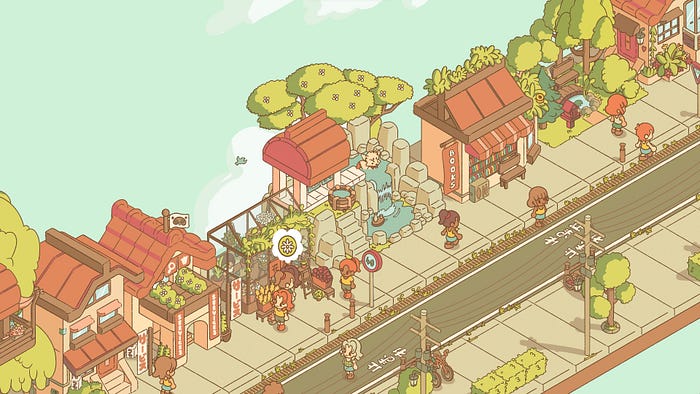I have previously discussed the stigma of cozy games and their influence on the current video game industry. However, recently, I've been considering the psychology behind cozy management games and why it has picked up in the indie game scene.
I think back to my obsession with games like Restaurant City and Neopets specifically; why did I spend so many hours on them? It can't just be for relaxation, right?
Let us dive into the psychology behind management games and explore why we pour hours and hours of our lives into such games.
Management Games Have Been Around Longer Than You Think…
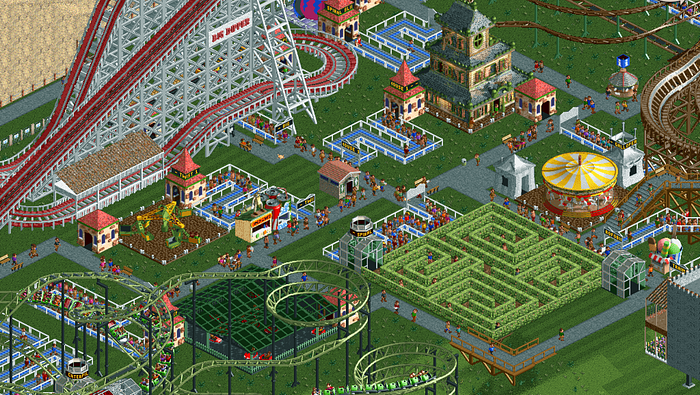
Management games have actually been on the market for a long time. Think back to games like SimCity, RollerCoaster Tycoon, or even Football Manager; these are all management games that people have poured their hearts and souls into.
Therefore, it struck me odd that people think of games like Minami Lane and Bear and Breakfast as a "new" type of genre within the cozy game sphere. It has always been in the sphere; perhaps it just didn't have the aesthetic that we all yearn for today.
Nonetheless, I think we can all safely say that these games give us plenty of replayability, enjoyment, and relaxation. I was obsessed with this genre when I was a wee teenager, and I think I now know why I couldn't stop playing them then.
I'm Finally Good at Something
Bandura (1997) introduced the Self-Efficacy Theory, which revolves around our belief in our capabilities to perform tasks and achieve desired outcomes. According to Bandura, self-efficacy plays a significant role in determining our success.
All this lingo can be simmered down to one simple idea: management games bolster our confidence in our abilities.
Think back to when we reached the goal of Megalopolis on Cities: Skylines or when we finally got the Pinefall Resort achievement in Bear and Breakfast. How does it make us feel?
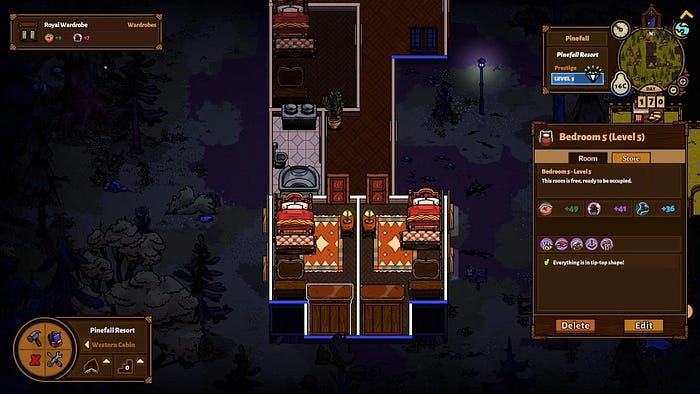
In our daily lives of confusion and chaos, it is comforting to have specific goals for us to achieve. Management games offer a structured framework with tangible steps to attain "success." As you tick off your list of tasks and reach top status, you can't help but feel a sense of fulfilment and confidence. You have truly mastered your experience in this game.
When I was a teenager, I was falling behind in school, and I wanted to have some grasp on my ability to master something, anything. While managing a restaurant didn't help me with my grades, seeing my levels go up gave me a sense of accomplishment and fueled my self-efficacy. That rewarding feeling was what I think made me more confident in real life and what got me hooked on management games in general. They fostered a sense of accomplishment and competence in my otherwise ordinary life.
We All Want A Sense of Control
Building on the self-efficacy theory, I think we can all say that management games not only gave us confidence in goal attainment. They gave us a sense of control.
These games support our psychological needs in three aspects: 1. They offer us a high degree of autonomy, 2. They give us a chance to demonstrate our skills within this "free" space, and finally, 3. They allow us to show off our achievements to others (think sharing Animal Crossing builds on Instagram or filming "Reaching 100k population in 10 days" videos on YouTube).
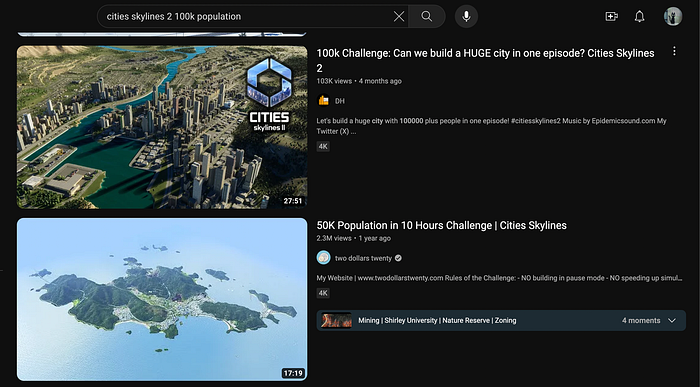
These three aspects perfectly depict the three core needs in Deci and Ryan's Self-Determination Theory (1985): autonomy, competence, and relatedness. These three psychological needs help us feel fulfilled and have a significant effect on our motivations, engagement in life, and overall well-being.
By giving us essentially a blank slate, management games offer us an opportunity to make decisions, set goals, and control the outcomes within the game world, helping us regain control and agency over our experiences on and offline. We are now the architects of our own destiny.
In Pursuit of Creativity
The previous two theories contributed a lot to the development of my teenage years, I think. But now, I'm a full-blown adult in her 20s; why am I still intrigued (or obsessed) with management games such as Animal Crossing: New Horizons?
Part of me blames it on the scorned years of the pandemic, and we're not going to go into detail about how people my age still feel like we're stuck at the age of 21 because of it. What I will go into, however, is the limited time we now have as adults to explore hobbies with our 9–5 jobs.
Work is all-consuming. It takes us most of the day, and by the time I go home, I no longer have the same energy I had as a teenager to journal, paint, or design. All of a sudden, I am hit by a wave of responsibility, work, and expectations. I am losing grip on my creative pursuits.
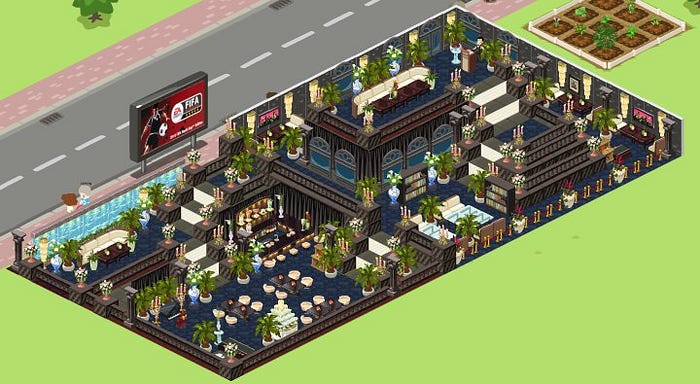
Management games, like Minami Lane, give me that burst of creative control in my mundane life. This might not apply to all, but having games where I manage a little cafe or restaurant at the side provides an outlet to decorate to my heart's content without real-life consequences. It reminds me that I am still that girl with a hidden desire to learn art and interior design.
Getting Sentimental Here…
I think all of us remember the happiness we had playing Neopets after school, and I believe that it is nostalgia that caused the cozy genre to shoot sky-high this past year. Management games are no anomaly, either. Out of all the reasons I stated above, my final reasoning is that we all just wish to maintain our childlike wonder again.
The sense of accomplishment I felt seeing 500 customers in my restaurant in Restaurant City, the times I used the "motherlode" hack to build a 10-room mansion for my sims in The Sims 4, and of course, spending hours downloading codes online to make my island look pretty on Animal Crossing: New Leaf. These all contributed to who I am today as a person, and my continued love for these cozy management games never stopped. These games always offered a haven for me to escape to amid the hustle and bustle of real life, and this is, I think, the ultimate reason why my love for such games won't stop any time soon.
Thank you for reading my article on cozy management games! What are your go-to simulation games? Let me know in the comments below.
If you wish to read more game-related articles, make sure to follow and subscribe to me. You can also check out my other social media channels here.
